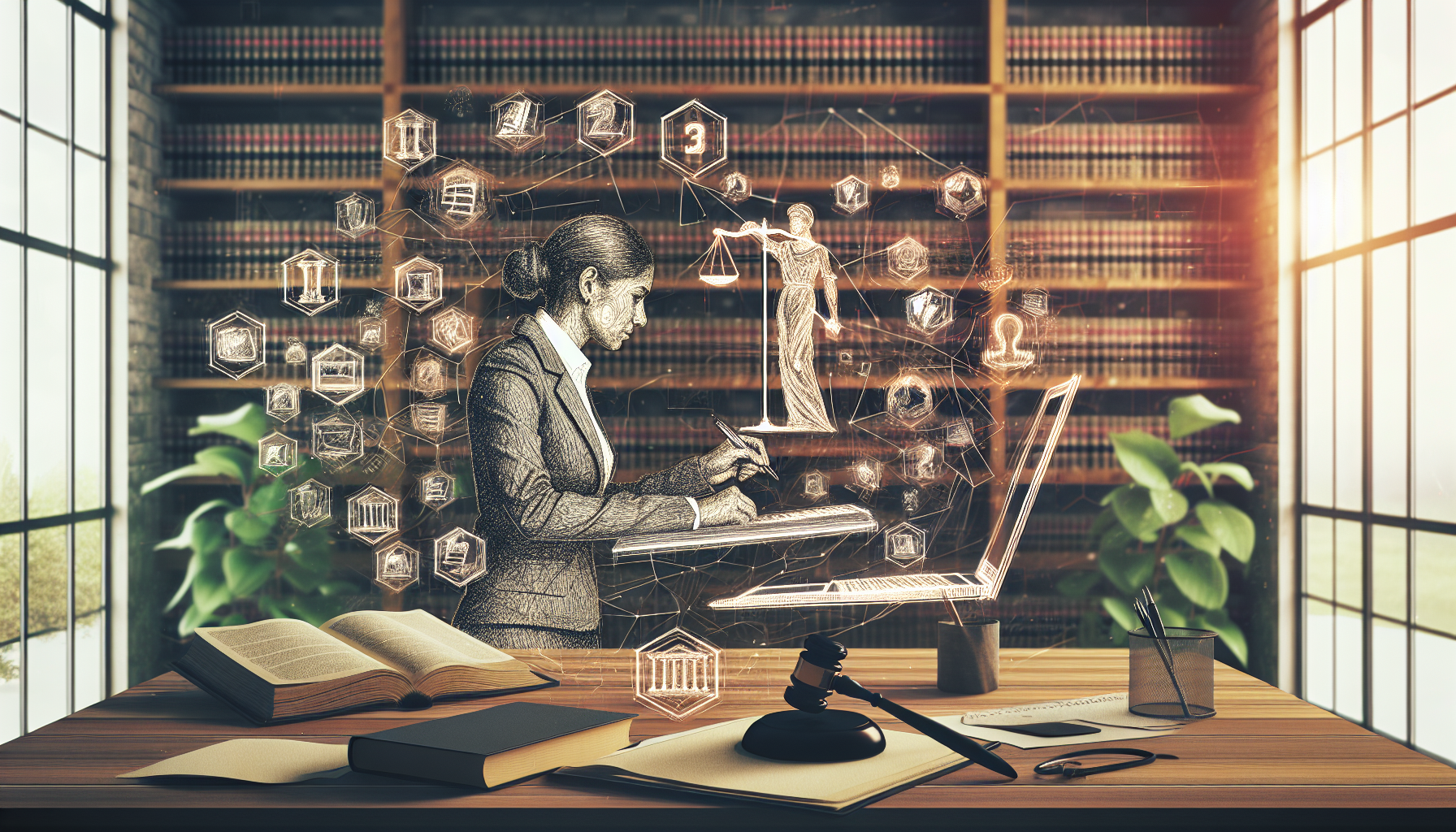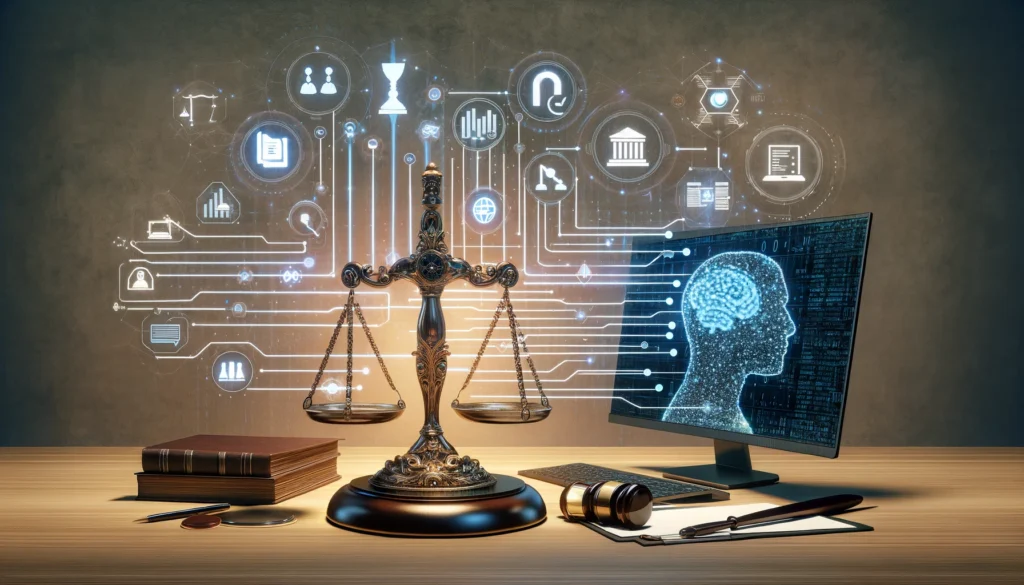
Elevating Efficiency with AI
Artificial Intelligence (AI) is revolutionizing corporate record-keeping, bringing about unprecedented efficiency and accuracy. In the legal landscape, paralegals are increasingly leveraging AI technologies to streamline their workflows. ChatGPT, powered by OpenAI, is a game-changer in this arena, offering transformative tools for managing corporate records. Its capabilities make it indispensable for paralegals aiming to accelerate their record-keeping processes while maintaining high standards of accuracy and compliance.
Understanding the AI Toolkit
To effectively utilize ChatGPT, it’s crucial to understand the array of capabilities that it offers for corporate record management:
- Natural Language Processing (NLP): ChatGPT can understand and generate human-like text, enabling it to assist in drafting documents, answering queries, and summarizing information.
- Data Extraction: AI can extract relevant data from extensive records, making information retrieval significantly faster.
- Automated Analysis: AI assists in analyzing large datasets to identify patterns, trends, and discrepancies.
ChatGPT boasts essential features, including a user-friendly interface, seamless integration with existing software, and robust compliance mechanisms. For paralegals new to this technology, an initial setup involves creating an account, familiarizing themselves with the interface, and training the AI with specific prompts tailored to their needs. This foundation allows paralegals to effectively deploy ChatGPT in their daily tasks.
Smart Document Drafting and Review
One of the more compelling utilities of ChatGPT is in the realm of document drafting and review. Paralegals can craft precise prompts to generate first drafts of legal documents, significantly reducing the time spent on initial compositions. For instance, a prompt such as, “Draft a non-disclosure agreement for a tech company sharing proprietary software with a partner,” can yield a comprehensive initial draft.
ChatGPT also excels in iterative review and refinement. By inputting feedback, paralegals can guide the AI to improve drafts iteratively. Prompts like, “Revise clause 3 for clearer language,” help refine documents to ensure clarity and precision.
Proofreading and Compliance Checks: ChatGPT can aid in proofreading by highlighting potential errors or suggesting alternative phrasing. For compliance, paralegals can use prompts such as, “Ensure this contract complies with state privacy laws,” allowing the AI to flag any compliance issues for further review.
This process, when used efficiently, remarkably enhances the quality and reliability of legal documents.
Optimizing Record Organization
ChatGPT can revolutionize how paralegals categorize and index corporate records. Here are some strategies:
- Categorization and Indexing: Use AI to group related records. Prompts like, “Categorize these documents by contract type and date,” can help streamline the organization process.
- Metadata Tagging: Effective metadata management is crucial for easy retrieval. AI can automate this process with prompts like, “Tag these records with relevant metadata for quick searchability.”
- Automated Filing: Routine tasks, such as filing and archiving, become effortless with automation. Simple directives like, “File these documents into their respective digital folders,” can save significant time.
Such applications of AI not only improve organization but also facilitate quicker access and better management of digital archives.
Streamlining Research and Information Retrieval
ChatGPT can significantly enhance legal research by providing quick and accurate information. By crafting well-defined prompts, paralegals can conduct efficient research. For instance:
- Legal Research: “Find recent case laws on data privacy affecting corporate entities.”
- Accurate and Relevant Information: “Summarize key points from the latest case laws on data privacy.”
Post research, managing findings and citations becomes easy with ChatGPT. Prompts like, “Organize these citations in APA format,” can be immensely helpful.
This ensures that the information retrieval process is not only faster but also more accurate and well-organized.
Enhancing Communication and Collaboration
In the domain of communication, ChatGPT can draft clear and concise messages, significantly aiding paralegals. For instance:
- Drafting Communications: “Draft an email notifying the team about upcoming compliance training.”
- Collaborative Editing: Using AI for collaborative editing also allows for efficient feedback integration. Prompts like, “Incorporate feedback from the legal team,” streamline the process.
Ensuring privacy and security is paramount in AI-assisted communications. Techniques such as encryption can be employed to maintain confidentiality, ensuring AI usage remains secure.
Creative Problem-Solving with AI
ChatGPT can also serve as a creative partner in problem-solving. Techniques include:
- Brainstorming Partner: AI can help generate ideas for complex legal issues with prompts like, “Generate strategies to navigate this intellectual property dispute.”
- Innovative Prompts: Craft prompts that encourage the AI to suggest alternative solutions. “Explore potential defenses for this breach of contract case.”
- Lateral Thinking: Encourage thinking from different perspectives with prompts like, “What are unconventional approaches to resolving this client’s issue?”
This innovative use of AI fosters lateral thinking and offers fresh perspectives, enhancing legal problem-solving capabilities.
Best Practices and Ethical Considerations
Adopting AI in legal tasks requires adherence to best practices and ethical considerations:
- Ethical AI Use: Ensure that AI usage aligns with ethical guidelines and professional standards.
- Confidentiality and Data Protection: Maintain data protection norms to safeguard client information.
Continuous learning and adapting are crucial for staying abreast of AI advancements and leveraging these tools effectively in legal environments.
The Future of Paralegal Work with AI
Looking forward, AI will undoubtedly continue to evolve, offering even more sophisticated solutions for corporate record-keeping. Paralegals are encouraged to proactively develop their AI-related skills to stay competitive in this transforming landscape. Embracing AI tools like ChatGPT will not only enhance current efficiencies but also redefine future paralegal work, making it more dynamic and technologically integrated.
By understanding and implementing these best practices, paralegals can harness AI’s full potential, ensuring precision, compliance, and unparalleled efficiency in corporate record-keeping.


